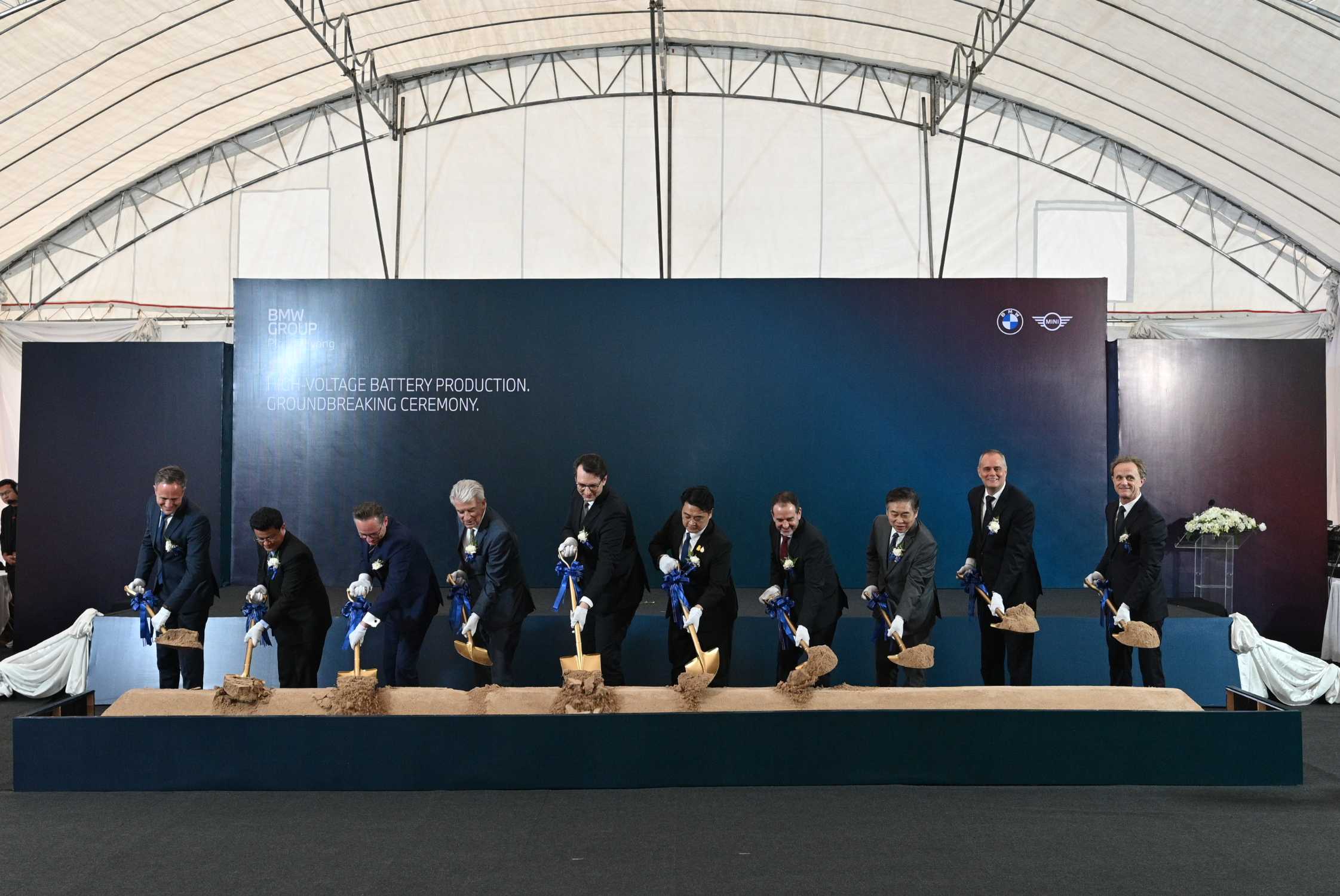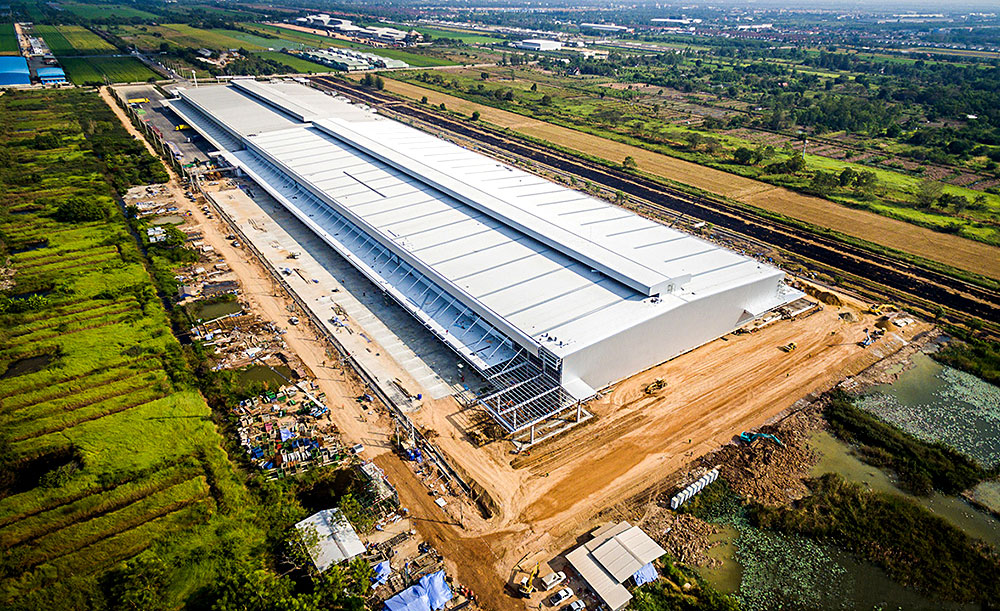Construction has officially broken ground on a new BMW battery manufacturing facility in Thailand. The new facility will produce Gen-5 high-voltage batteries for their electric vehicles. Imported battery cells will be assembled on the new assembly line into modules that will then be integrated into high-voltage batteries.
Project cost
The BMW Group claims to have invested more than € 42 million in the project. This is a significant share of which, almost € 36 million, will be used to buy state-of-the-art equipment and systems. Furthermore, it will have a footprint of 4,000 square meters and is coming up at the company’s already existing car plant located in Rayong town at the east coast of the country.
“Local production of high-voltage batteries in Rayong is the next logical step in the continued electrification of our production network. Once again, the principle of ‘local for local’ applies, supporting economic development, employment opportunities and knowledge transfer in Thailand and the ASEAN region,” said Milan Nedeljković, Board Member for Production at BMW AG, at the ground-breaking ceremony.
BMW’s presence in Thailand
The BMW Group has been producing high-voltage batteries in Thailand for locally made plug-in hybrids since 2019. Plant Rayong manufactures around two dozen BMW, MINI and BMW Motorrad models for the Thai as well as various ASEAN markets. In 2023 output totalled more than 12,000 cars and almost 11,000 motorcycles.
In addition to its manufacturing endeavors, BMW Group is committed to professional training and development for its employees. This has reflected in its investment in the local workforce’s skills enhancement. Furthermore, this commitment extends to a partnership with UNICEF in Thailand. The collaboration aims to improve young people’s career prospects through education in science, technology, engineering, and mathematics (STEM), alongside offering training and career advice. This collaborative effort signifies BMW’s broader objective to contribute to sustainable mobility solutions and resource conservation on a global scale.

Thailand’s ambitious EV goal
Thailand recently announced their aspiration to manufacture Zero Emission Vehicles (ZEVs) at least 30% of the total motor vehicle production by the year 2030, or 725,000 cars and 675,000 motorcycles. Supported by government policies and incentives, Thailand’s EV roadmap encompasses all aspects of the electric vehicle supply chain. It involves a focus on batteries and local production of critical parts. Furthermore, it includes commercial vehicles of all sizes, as well as ships. Currently, over 2,000 companies currently operate in Thailand’s automotive supply chain. 30 global automakers are using the country as their main production base in ASEAN, establishing Thailand as the world’s 11th-largest automobile production base.
In support of the uptake of electric vehicles, the Thai Government and private sector partners plan to establish 10,000 charging stations across the country by 2025, with the number expected to increase to 80,000 charging stations by 2035.
Also Read:
$100 M BMW Logistics Center coming to Spartanburg County
BMW Group South Africa to open a new regional distribution centre
The World’s First Airport Electric Vehicle Charging Station Network Unveiled in London Gatwick
Thailand to build a land bridge between the Indian and Pacific Oceans
